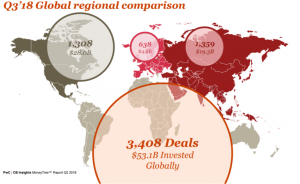Here’s a view of what a decentralized, all-code company might look like in its initial form.
As tech giants like Facebook explore blockchain as a means to reinvent themselves, startups are working on blockchain projects that could displace services like AWS (as with Filecoin) or loosen tech companies’ hold on personal information.
Now, in addition to transforming areas like data and payments, blockchain is shaking up traditional corporate structures. Through blockchain, companies could fundraise without stocks, operate without bank accounts, or pay employees without even knowing their names.
Could we soon see the creation of a completely ownerless company?
Below, we dig into how the blockchain-based company of tomorrow might take shape, from anonymous workforces to shared physical assets.
INCORPORATING A COMPANY WITHOUT STOCKS
Conventional wisdom dictates that startups should incorporate with taxes and stock options in mind. However, tomorrow’s companies might abandon this philosophy altogether.
According to Earn founder-turned-Coinbase exec Balaji Srinivasan,
“Blockchain companies, to build a community, only need an internet connection and a good regulatory environment… They’re open source groups that [manage internal funds in] straight crypto and might not even have traditional, terrestrial bank accounts.”







